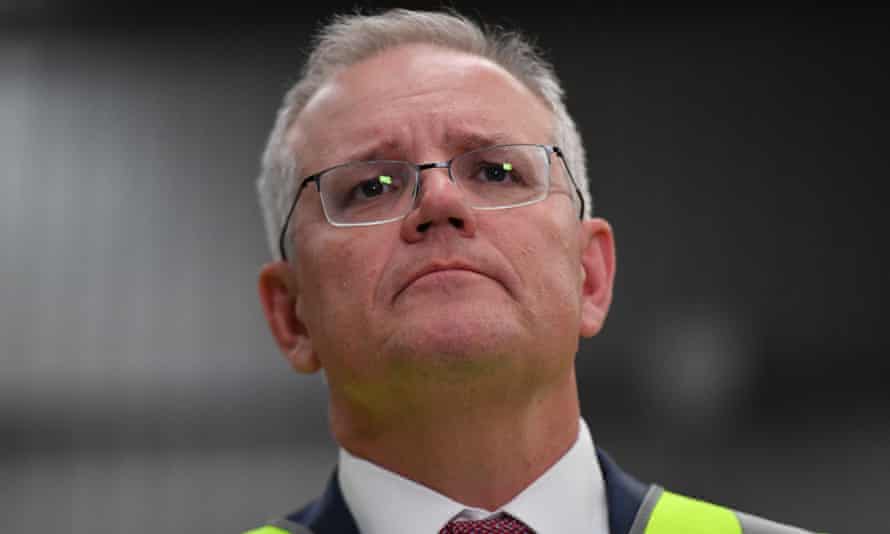Extract from The Guardian
Grogonomics graph of the week Climate change
The first mention in parliament of ‘greenhouse gas’ occurred in 1986 - decades later the government is still not proposing anything near appropriate.

‘Over 35 years nothing has really changed – no urgency and no real policy.’
Last modified on Sun 25 Apr 2021 10.20 AEST
So many wasted years.
The first mention in parliament of “greenhouse gas” occurred in 1986 when the ALP’s Barry Jones took a question on whether the government was concerned about the greenhouse effect and reports that it “will raise ambient temperature to such an extent that sea levels will rise and flood coastal cities”.
Jones set the tone for climate-change policy ever since by suggesting calm and replying that he “must emphasise that the consequences, at least for the next 50 years … are not likely to be either catastrophic or even dramatic”.
He did, however, note that the issue did require “appropriate preventive long-term action.”
Here we are 35 years later, not even close to a government proposing anything near appropriate.
He did, however, commit $275m for hydrogen hubs over five years and $263.7m for carbon capture and storage (CCS) projects and hubs over the next decade.
Ahh, CCS, that glorious amalgam of policy and boondoggle.
It too has a long history.
Clean coal production has from the beginning been governments’ go-to response to deal with climate change. The first mention of “clean coal” in question time should have been warning enough for what would follow.
In 1990, the Hawke government’s minister for primary industries and energy, John Kerin, was asked about the impact of the “decision to adopt targets for the reduction of greenhouse gas emissions on the Australian coal industry”.
Kerin cited the Australian Coal Association, which he noted “places a very high priority on the reduction of greenhouse gases generated by coal production and combustion”. He then suggested that “it goes without saying, of course, that the coal industry has been working on this question for quite some time”.
Well, quite.
Ahh bless.
Thirty-one years later and those steps are apparently still being taken. Such a long walk for so little distance covered.
Clean coal and carbon capture and storage reached its peak policy popularity in the mid-late 2000s.
Graph not displaying? Click here
The first person to mention “carbon capture and storage” in the House of Representatives was Alexander Downer in 2005 when he suggested of a new “Asia-Pacific partnership on clean development and climate” that “we have identified many areas for potential technology cooperation, including clean coal, agriculture, carbon capture and storage”.
Perhaps back then one could be forgiven for thinking that that “potential technology” might save us, but now you would need to be wilfully ignorant to suggest such a thing.
CCS became supremely popular during the Rudd government years because while it retained its handy “pro-coal” bias, it was also a policy that – like others aspects such as nuclear power – only made the slightest bit of sense with a price on carbon.
As early as 2006, Lenore Taylor, then writing for the AFR, noted even the Australian Coal Association was saying “carbon capture will only happen when there is an emissions trading scheme so that electricity generators can recoup their investment”.
Of course, it’s obvious the Morrison government doesn’t even believe its own spin.
When the government was confronted with the reality of the pandemic and massive job losses, it committed $130bn in one year for the jobkeeper program. If the government truly thought carbon capture and storage was the solution to allowing our mining sector to thrive while also combatting climate change, would they really only commit 0.2% of that amount?
$26m a year to develop a technology that has been promised and failed to deliver for over 30 years? It’s a policy only a climate change denier would bother pretending is worthy; and even the pretence is pretty meagre.
And so this week we realise that over 35 years nothing has really changed – no urgency and no real policy. All that has differed is the addition of more wasted years.
No comments:
Post a Comment